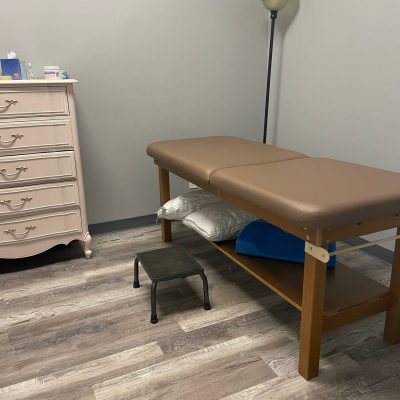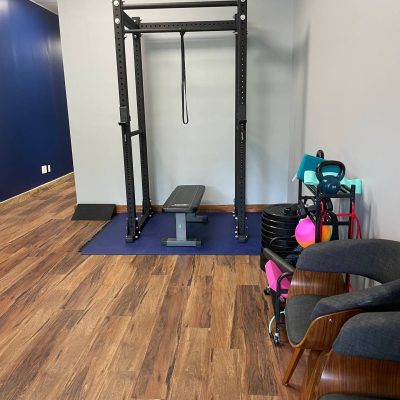Do not limit your overall fluid intake. Most people think that if they drink more fluids, they will urinate and leak more. The problem with this is that decreasing fluids will cause your urine to be more concentrated, which will irritate the lining of the bladder and cause you to feel more urgency and potentially experience more leakage. The general rule to follow is to try to consume at least 50% of your body weight in fluid ounces of liquid daily. Your daily intake of fluids should be primarily water. You should aim to have the color of your urine be a very pale yellow; a darker yellow urine color means you need to hydrate more.
Do not empty your bladder “just because.” When people have trouble with urinary leakage, they often start going to the bathroom more often to make sure their bladder is always empty. This practice can unfortunately lead to greater bladder urgency, frequency, and potentially more leakage.
The bladder is an essential organ in the body responsible for storing urine until it’s time to urinate. However, sometimes the bladder can become irritated and cause discomfort, pain, or even urinary incontinence. Bladder irritants are substances that can cause irritation to the bladder and worsen symptoms of certain bladder conditions, such as overactive bladder or interstitial cystitis. In this article, we will discuss some of the most common bladder irritants and how to manage them.
Caffeine is a stimulant that is commonly found in coffee, tea, soda, and chocolate. It can irritate the bladder and cause increased urinary urgency and frequency. If you have an overactive bladder or interstitial cystitis, it’s best to avoid caffeine or limit your intake. Try switching to decaffeinated beverages or herbal teas.
Alcohol is a diuretic that can increase urine production and irritate the bladder. It can also act as a bladder relaxant, causing you to feel the urge to urinate more frequently. If you have bladder problems, it’s best to limit your alcohol intake or avoid it altogether.
Spicy foods can cause irritation to the bladder and exacerbate bladder symptoms. If you have an overactive bladder or interstitial cystitis, it’s best to avoid spicy foods or limit your intake. Try using mild spices and herbs to flavor your meals instead.
Foods and beverages that are acidic, such as citrus fruits, tomatoes, and vinegar, can irritate the bladder and cause discomfort. If you have bladder problems, it’s best to limit your intake of acidic foods and beverages. Instead, try consuming foods that are alkaline, such as leafy greens, nuts, and whole grains.
Carbonated beverages, such as soda, can cause irritation to the bladder and worsen bladder symptoms. If you have an overactive bladder or interstitial cystitis, it’s best to avoid carbonated beverages or limit your intake. Try switching to still water or herbal teas.
Managing Bladder Irritants
- If you have bladder problems, it’s essential to manage bladder irritants to prevent worsening of symptoms. Here are some tips:
- Keep a bladder diary to track your symptoms and identify potential irritants.
- Avoid bladder irritants, such as caffeine, alcohol, spicy foods, acidic foods and beverages, and carbonated beverages.
- Drink plenty of water to flush out your bladder and reduce irritation.
- Practice pelvic floor exercises to strengthen your bladder muscles and reduce bladder symptoms.
Consider working with a Pelvic Floor Physical Therapist to help better manage your bladder problems.
In conclusion, bladder irritants can cause discomfort, pain, and urinary incontinence in people with bladder problems. It’s essential to avoid or limit bladder irritants and practice healthy habits to manage bladder symptoms effectively. If you have persistent bladder symptoms, it’s important to speak with a healthcare provider for proper diagnosis and treatment.







